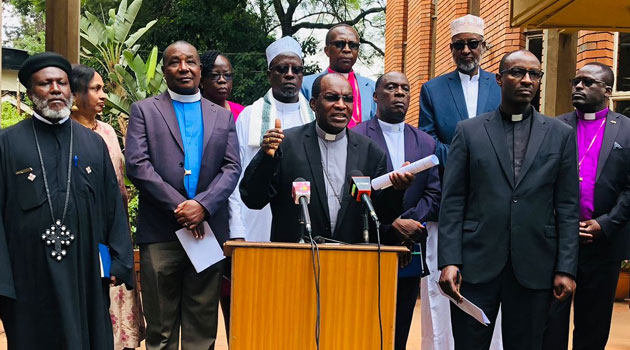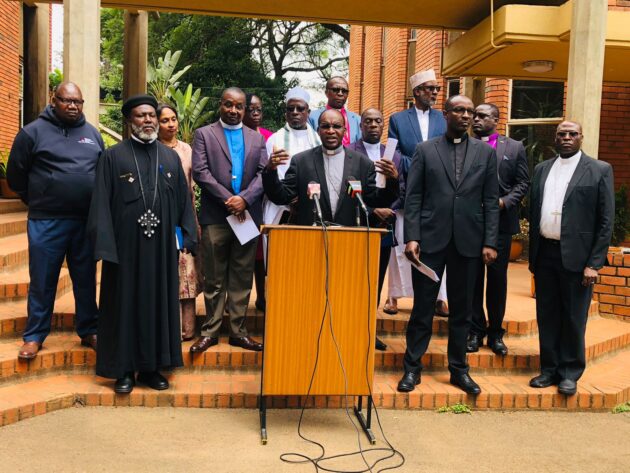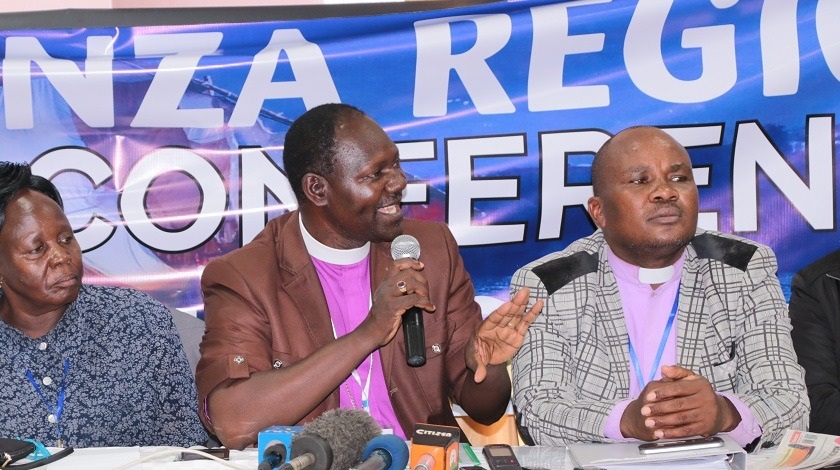The Council of Churches (NCCK) has asked President William Ruto to approach the opposition for dialogue to prevent the escalation of recent protests.

Addressing the media on Tuesday, the council demanded an end to partisan politics so that the problems facing the nation would get a solution.
As a representation of national unity, "Your Excellency (Ruto), we request that you direct the nation's attention to oneness, equity, and equality of all Kenyans," said NCCK.
"It is crucial that you take the initiative in fostering discussion with the opposition to advance national progress, as the difficulties we face as a country require national conversations and not hostile politics," the letter reads.
Did you read this?
Also, the religious leaders challenged Raila Odinga's Azimio party to take a problem-based, solution-focused approach or risk seen as anarchist champions.
They invited the opposition to offer workable ideas to lessen the severe hardship that Kenyans are going through.
The council urged the opposition to "encourage the opposition to reconsider the proposed mass action programme and instead embrace dialogue and alternative peaceful measures that do not risk the lives and livelihoods of Kenyans.
The NCCK urged Kenyans to resolutely oppose political and social leaders who sow strife and resentment instead of supporting those who prioritize finding solutions to the problems the nation is now experiencing.
After Odinga's appeal for widespread protest, NCCK made its statement as small-scale demonstrations spread nationwide.
IEBC Recruitment
IEBC recruiting On February 22, during a "National Prayer Day" at Jeevanje Gardens, Odinga threatened widespread action by giving the government a 14-day deadline.

Following the seven members' resignation, he urged the recruitment of IEBC commissioners to take a pause on hold.
Three commissioners' terms—Wafula Chebukati (Chairperson), Boya Molu, and Yakub Guliye—ended, leaving the positions vacant.
Once Ruto established a tribunal to investigate their behaviour, three more people—Justus Nyang'aya, Francis Wanderi, and Vice Chairperson Juliana Cherera—resigned.
Cherera, Wanderi, and Nyang'aya belonged to a dissident group that rejected the results of the presidential election and included Irene Masit.
The Cherera camp, according to witnesses who testified before the tribunal presided over by Judge Aggrey Muchelule, allegedly sought to tamper with the election results to reverse Ruto's victory.
Supporters of the Azimio movement have since taken to the streets in Kisumu's Kondele and Migori as Azimio leaders get set for what has been called the "mother of all protests" in Nairobi on March 20.
Yet, the number of supporters participating in the recorded protests has been noticeably low compared to previous large-scale demonstrations.









